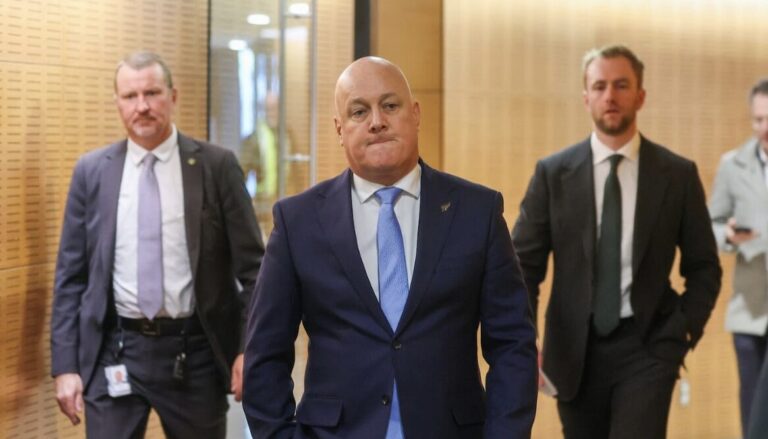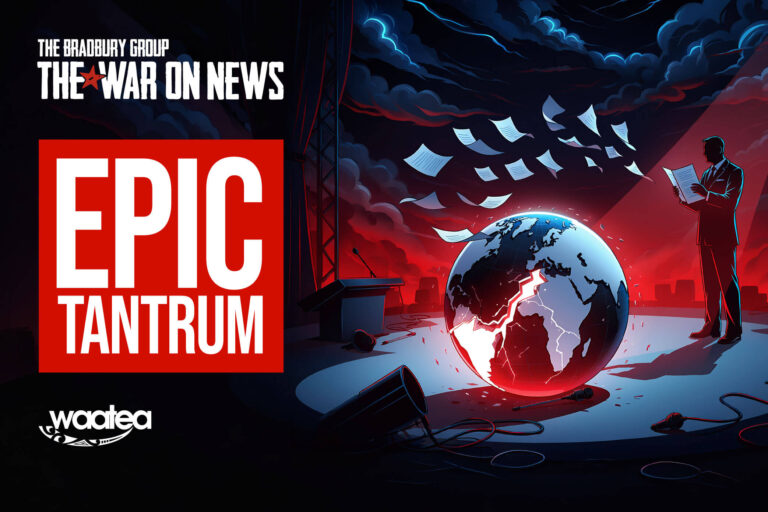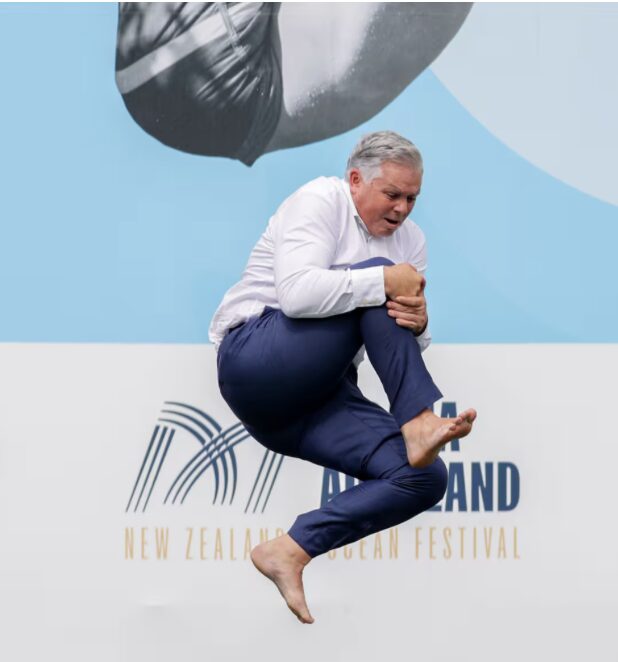Ben Morgan’s Pacific Update: Potential impacts of the US presidential election in the Pacific region
The election of President Trump will certainly influence security in the Pacific. At this stage, information about the new administration’s potential position is starting to emerge allowing observers to start considering the security implications of the new president.
During his election campaign, President Trump talked tough on China and threatened tariffs of up to 60% on Chinese imports to the US. And, during his last presidency the US deepened its defence relationship with Taiwan. Now, the new president is nominating key advisors some media describe as ‘China Hawks,’ for example:
- National Security Advisor – Congressman Mike Waltz. A decorated special force veteran, Waltz has stated the US and China are locked in a Cold War. This November writing in The Economist he argued the US needs to bring an end to the Ukraine and Middle East conflicts so that it can ” focus strategy attention where it should be: countering the greater the threat from the Chinese Communist Party.”
- Secretary of State – Senator Marco Rubio. Another politician with strong opinions on Sino-America relationships, describing the China as the “threat that will define this century” and backing bills to restrict trade. Currently, he is banned from entering China. war, reducing US cost and allowing the nation to focus elsewhere.
- Secretary of State – Peter Hegseth. A Fox news presenter and decorated combat veteran, Hegseth is not a politician but his recent statements on the popular Shawn Ryan podcast that China is “building an army specifically dedicated to defeating the US” may indicate a ‘hawkish’ position towards China.
The potential impact of these appointments on US policy is hard to judge, historically President Trump is known for his unpredictability and difficult relationships with advisors. Additionally, a key supporter and advisor Elon Musk, is a closely linked with China. Musk’s companies manufacture products in China, and he appears to have an open relationship with the nation’s officials. He is likely to be contrary voice in the new administration. However, the political history of these people and their nominations may indicate the new administration’s desire to focus on Sino-American competition.
In my opinion, the key trends to watch in the Pacific are:
- Trust and confidence may be the new administration’s biggest short-term foreign policy issue. The new president has made many statements about foreign policy, including that Taiwan should contribute to its own defence. Further, the administration’s policy towards Ukraine is unclear, and statements about new president ‘putting America first,’ raise questions about whether these statements are political rhetoric, or if they will translate to a withdrawal of the US from collective security arrangements. Important information for Pacific nations like Philippines, Japan and South Korea that are currently managing the threat posed by will be an increasingly assertive China Essentially, if the US becomes more isolationist in its foreign policy, nations across the Pacific will be increasingly vulnerable. Ukraine is likely to become a test case because if the US stops supporting it that will increase uncertainty.
- Ukraine may impact on Pacific security discussions in other less direct ways. For instance, NATO partners support Ukraine, and may not support US attempts to force a peace deal on Ukraine. Diplomatic tension in Europe may encourage the new administration to work bi-laterally with security partners rather than trying to build a collective security framework, that could collectively oppose US foreign policy initiatives. Current Japanese Prime Minister, Shigeru Ishiba has previously argued for an Asian NATO, an idea that may get traction with other large Asian nations. It will be interesting to monitor the situation and see how US foreign policy develops, specifically whether it support an Asian NATO.
- The evolution of the security agreement like AUKUS and the Quadrilateral Dialogue (the Quad). Existing security agreements and dialogues are likely to strengthen. In my opinion, the US will extend membership of the non-nuclear aspects of AUKUS to key US allies and partners like Canada, Japan and South Korea. Countries with highly sophisticated, modern defence industries that can contribute technology and intelligence to the partnership. It also seems likely that new administration will continue to support the Quad, regardless of whether it supports an Asian NATO.
- Australia, Japan and Korea’s security roles will evolve, probably driven by more ‘hawkish’ US foreign policy demanding a greater contribution to regional security. However, by increasing their spending and working together more these countries also mitigate the risk posed by the new president’s record of unpredictability, and the risk of an American drawback in the region. A noteworthy point is that regardless of US foreign policy, China’s assertive foreign policy means that larger nations in the region will increase their military spending.
South China Sea update, new US Task Force established in Philippines
Task Force-Ayungin, is new US task force based in Philippines to support maritime operations in the South China Sea. The task force was revealed when US Secretary of Defence Lloyd Austin, visited the nation recently.
The task force assists with planning and helps train forces from the Philippines military’s Western Command. This command’s area of responsibility is where most clashes with Chinese vessels happen. The task force assists the Philippines to operate US supplied uncrewed vessels including four MANTAS T-12s and at least one MANTAS T-38 Devil Ray. Both are small uncrewed surface vessels, primarily focussed on surveillance operations.
The revelation of the Task Force-Ayungin provides insight into the evolution of US support for Philippines in its contest with China. Since the middle of the year, the US has increased is intelligence support to the nation. US Marine Corps MQ-9A Reaper drones have been operating from Philippines airbases since at least June, and the use of US P-8 Poseidon maritime patrol aircraft in the areas has also increased.
The task force’s role is likely to be assisting integration of these surveillance assets with Philippines naval and coast guards units responding to Chinese infractions. The Philippines military is poorly funded, low-tech and not well-trained and it is likely that it does not have the capacity to manage these assets effectively. Therefore, the US is supplying personnel and communications equipment that can manage the flow of information from drones and surveillance aircraft, interpret it and produce intelligence to inform host nation operations.
It remains to be seen if Task Force-Ayungin will impact on tensions in the area, it is clearly focussed on supporting enforcement of Philippine’s territorial waters. However, China may view the task force’s creation unfavourably because it is a demonstration of US support for Philippines.
South Korea’s evolving security position in the Pacific
South Korea faces a range security threats, from its belligerent neighbour, North Korea to its proximity to an increasingly assertive China. Like many nations near the East and South China Seas, South Korea is expanding and strengthening its military relationships with both its close neighbours, and other nations further afield.
A trend that is amplified by North Korea’s decision to send troops to support Russia’s war in Ukraine. Russia and North Korea signing a defence agreement on 11 November, the Treaty of Comprehensive Strategic Partnerships with Russia. North Korea’s actions throwing into sharp relief the inter-connectedness of the modern world. South Korea immediately expanded its information sharing activities with NATO nations. South Korean intelligence services often being quoted recently as the source for intelligence about North Korea’s deployment to Ukraine.
Recently, on 7 October 2024 South Korea and Philippines announced a new ‘strategic partnership’ that includes closer military relationships. South Korea has a large and sophisticated defence industry and closer military relationships are also a way to the increases sales of their weapons. Philippines recently purchasing advanced FA-50 fighters, and warships from South Korea.
And, on 10 October 2024, South Korea announced that it is increasing its commitment the Association of South-East Asian Nations (ASEAN) that although not a defence alliance often serves as forum to mediate tensions in the region.
Looking further afield, South Korea, the US and Japan signed a trilateral security pact in August 2023. An agreement that initiated a much closer operational relationship between the three countries. The agreement brings together the three largest and most sophisticated militaries, excluding China in the Pacific, and we can observe the integration of these nation’s responses to recent North Korean missile tests.
South Korean President Yoon Suk Yeol’s recent public statements about security relationships indicate his nation’s concern about the potential for disruption to maritime trade if China continues to assert its un-recognised claims to the South and East China Seas, or in a worst case scenario invades Taiwan. The president clearly articulating his nation’s support for the ‘rules-based order’ stating recently in Manilla that South Korea and the Philippines “will continue to work together in order to establish a rules-based maritime order and for the freedom of navigation and overflight pursuant to the principles of the international law on the South China Sea.”
South Korea’s influence is likely to increase, new Japanese Prime Minister, Ishiba Shigeru has spoken about the possibility of an ‘Asian NATO,’ and Japan and South Korea are likely to be founding members. The two nations militaries already cooperate closely. Additionally, they are both large (and growing) military powers so if this alliance does develop, they are likely to play a pivotal role. A Japanese and South Korean led security alliance may develop as way to mitigate the risk of unpredictable US foreign policy under a Trump Whitehouse.
Melanesian update
A regular update on the Pacific’s least reported trouble spot; Melanesia.
Australian sporting diplomacy in Solomon Islands
The Australian Defence Force is currently running a sport-based engagement programme, hosted by the Solomon Islands National Institute of Sport in Honiara. Australian defence personnel that play Rugby, Soccer and Judo are in Solomon Islands coaching and competing between 25 November and 1 December.
This activity is noteworthy because it highlights the wide scope of ‘soft power,’ large nations use to extend their influence. Solomon Islands has recently become more closely aligned with China, creating a security concern for Australia. By using its defence force’s athletes to encouraging sporting activities between the two nations Australia is developing networks, strengthening relationships and building rapport within Solomon Islands. Networks that provide intelligence and influence in the nation.
Ben Morgan is a bored Gen Xer, a former Officer in NZDF and TDBs Military Blogger – his work is on substack








Got to laugh ironically GS, agree Hegseth isn’t up to being Sec of State but Blinken is Sec of State. A man who wants Ukrainian 18 year olds to be drafted and die, a man who has sent tonnes of bombs to kill children in Palestine. Can it get worse?
Let’s not have conniptions in advance of Trump’s appointments, given that a number of them are simply not going to make it. Even with a lot of arm-twisting. Hegseth – who isn’t up for Secretary of State, but Defence Secretary AFAIK has just posted a whiny statement about giving up alcohol if he is appointed. Even if he was he has absolutely no administrative experience even though he might be a combat veteran. And defence is the largest portfolio – if you want to call it that – in the US. Ain’t going to happen, probably was never going to happen.
Ben cheering on the dictator President Yoon who suspended democracy just yesterday, as usual.
And it hasn’t gone well for him!
Got to agree Gerrit that Trump will be internally focused, there are no winning “deals” for the Empire. Rebuilding the US economy from a financial imperialist leach to actually making something, that’s to be applauded. Empires ultimately cost too much. Good example the Soviet in eastern Europe became too much to maintain. Now we have idiots insisting Putin wants it back. The Russians aren’t that silly, the memory is too fresh.
Re Taiwan, they are a trading island. Being Han they will do whatever makes money. China can win without military effort, that’s why the US are posturing.
I think the posturing by China regarding Taiwan and hegemony over the South China Seas is but a magicians slight of hand. Keep people focused on the meaningless (long term) activity played by this hand whilst expanding imperialistically into Turkestan and Siberia with the hidden hand.
China does not need Taiwan or total control of the South China Seas. Even though the Malacca Straight remains a vital choke point it needs to protect short term (by keeping the Pacific / South East Asian nations focused on the hand in play there) until it can liberate the vast coal / gas /oil reserves in Turkestan and Siberia (cutting the dependence on Middle Eastern fossil fuels with the other hand).
China is busy harvesting the gigantic Siberian forest for trees and has eyes on the vast fresh water resource off Lake Baikal to supply the drought prone and water poor Northern China.
The Pacific / South East Asian nations are rising to the bait and Australia in particular is being played to buy military hardware it does not need (nuclear submarines) or can realistically afford. (USA and UK are simply spreading the cost over an extra partner). By the time the new submarines are “on station”, China will be fully entrenched in Turkestan and Siberia and can stop playing in the seas around its coast.
One issue to think about, Ben; The American MIC wont like the competition from Japanese and Korean (or even European) manufacturers (selling to NATO plus Pacific South East Asia) and just how Trump will appease them is going to be interesting (possibly manufacture to stockpile to replace hardware expanded in Ukraine).
I think by design Trump will focus internally (MAGA) and leave China alone (except for tariffs on Chinese imports). He wont start any wars nor have a need to defend Taiwan. He will let the USA hegemony around the world slide in favour of an internally focus better suited to the USA problems (off which there are many).
China’s suitcase expansion in Siberia and Turkestan is of no importance to Trump or the USA.